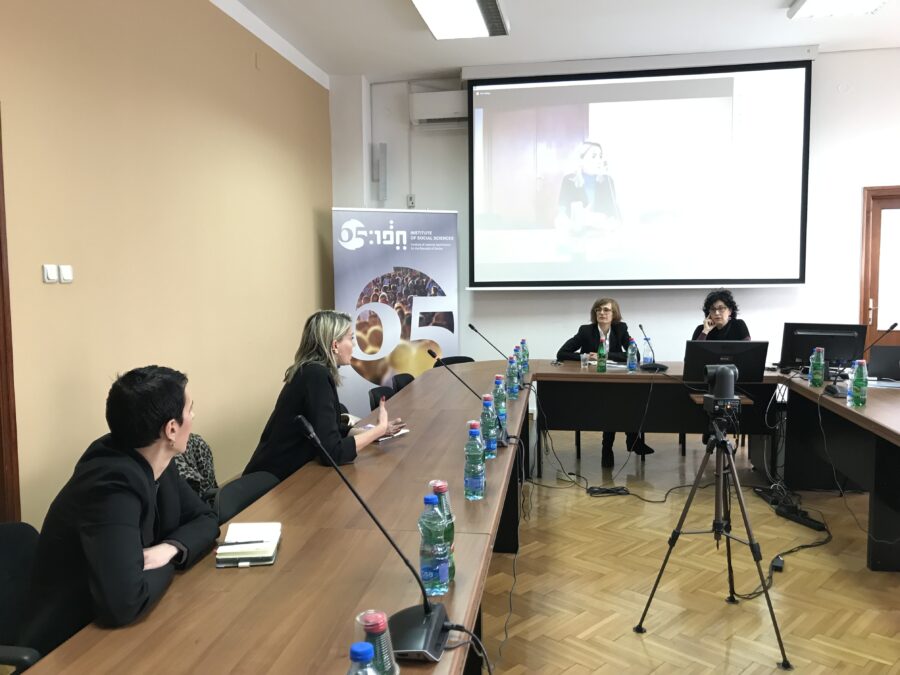Crises, especially those that are unpredictable and externally caused, not only pose a challenge to a society and institutions, but also – like under a magnifier – reveal the state in which a country is. Whether the state, on the one hand, has the necessary structures, mechanisms, resources and knowledge to address the crisis and, whether on the other hand citizens have trust in politics and professionals, prove to be central questions in times like these. The outbreak of the smallpox epidemic in Yugoslavia in 1972, the last of its kind in Europe, posed such a challenge to socialist Yugoslavia. Prof. Dr. Radina Vučetić from the Faculty of Philosophy, University of Belgrade, spoke about this three-month crisis and the state’s response to it in her lecture: “Handling the Crisis: Yugoslavia and the Smallpox Epidemic”.
Guided by an amazing historiographical effort and research completed in 2022 and published in the monograph “Nevidljivi neprijatelji – Variola Vera 1972 (Belgrade, Službeni glasnik, 2022)”, Radina Vučetić, in the introductory part, spoke about the history of smallpox and the devastating extent they had. In the 20th century alone, more people died from this virus than there were total victims in all wars together worldwide in that century.
The central part of the lecture was dedicated to the smallpox epidemic in Yugoslavia: the manner in which it broke out, the reaction of the political elite and the medical professionals, and the measures which were taken to fight it, above all a comprehensive vaccination of the population. With the ability to insert interesting historical details at the right place throughout the lecture, Radina Vučetić showed in her lecture not only the full complexity of the crisis, but above all the strengths and weaknesses of Yugoslavia at that time.
Among the strengths were undoubtedly the primacy of the medical professionals over politics, the existence of a over years built cooperation between Yugoslavia and the developed countries of the West, and the institutional and human capacity to quickly adopt and apply the standard protocols for combating an epidemic of such magnitude. On the other hand, the state’s weaknesses were reflected primarily in the inexperience and inadequate training of doctors in smaller communities, as well as the state’s inability to prevent the instrumentalization of the crisis and the spread of an unfounded narrative of a scapegoat, which created national tensions. The weaknesses of Yugoslav federalism were also revealed, as the state failed to ensure an even and equal implementation of measures, to the detriment of less developed parts of the country, especially Kosovo, despite being one of the most endangered region.
The last part of the lecture was dedicated to reviewing the still existing danger of smallpox, as the virus is still kept under laboratory conditions, and to parallels with the COVID pandemic that was recently affecting the world and therefore also the countries of the former Yugoslavia. Although these two pandemics and the context in which they took place are not completely comparable, the lecture showed that socialist Yugoslavia, with all the limitations it had as a developing country, responded to the crisis with remarkable skills in doing what a state is supposed to do in such situations: to take decisive action and implement professional measures in order to save as many lives as possible and to combat the deadly virus as quickly as possible.
The lecture took place on March 27, 2024 as part of the cycle of the Regional Tea Party “Yugoslavia”, organized by the Academic Network for Cooperation in Southeast Europe in collaboration with the Institute of Social Sciences.

